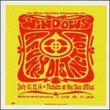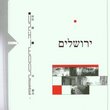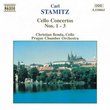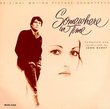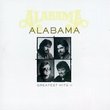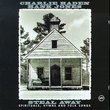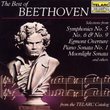| All Artists: Gabriel Faure, Deodat de Severac, Louis Vierne, Jeremy Summerly, Oxford Camerata, Schola Cantorum of Oxford, Colm Carey, Lisa Beckley Title: Fauré: Requiem; Messe basse; Cantique de Jean Racine Members Wishing: 0 Total Copies: 0 Label: Naxos Original Release Date: 1/1/1994 Re-Release Date: 11/29/1994 Genres: Special Interest, Classical Styles: Opera & Classical Vocal, Historical Periods, Early Music Number of Discs: 1 SwapaCD Credits: 1 UPC: 730099576529 |
Search - Gabriel Faure, Deodat de Severac, Louis Vierne :: Fauré: Requiem; Messe basse; Cantique de Jean Racine
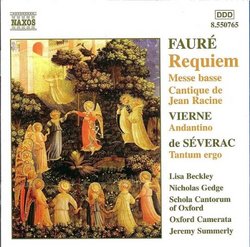 | Gabriel Faure, Deodat de Severac, Louis Vierne Fauré: Requiem; Messe basse; Cantique de Jean Racine Genres: Special Interest, Classical
|
Larger Image |
CD DetailsSimilar CDs
Similarly Requested CDs
|
CD ReviewsA meditative alternative to all those booming requiems. darragh o'donoghue | 08/29/2001 (5 out of 5 stars) "After Mozart, requiems in the Romantic era became progressively noisier, employing vast orchestral and vocal forces, whether to shake the heavens, make vivid the torments of death and purgatory, or as a humanist act of defiance. It was in reaction to one such work, Berlioz's ear-shattering Requiem, that Faure composed his small-scale masterpiece, for choir, four violas, 4 cellos, solo violin and organ. Very few Requiems actually sound like the moment of death, the passing of the soul from the dead body, but Faure's does - the almost intolerable bass weight created by the violas, cellos and organ contrast with the free-floating ethereality of the singing, or the liberated violin. First performed in 1888, this Requiem is closer to the sacred work of JS Bach - the haunting minimalism, with voice often accompanied by a solo instrument, or the organ, with all its potential for massive bluster, played with the clarity and delicacy of a harpsichord, creates a tension of anxiety and serenity. There is plenty of drama too, the gathering momentum of the opening 'Kyrie', the swirling insistence of the famous 'Agnes Dei', the quietly frightening vision of Judgement Day in 'Libera Me', all given extra force by the restrained surroundings. This Requiem was soon expanded to Romantic scoring which, regrettably, is the version best known today. This issue returns to Faure's orignal intentions, and is a hushed revelation. Jeremy Summerly, with his Oxford Camerata and Schola Cantorum, are usually to be found in the stringently intellectual repetoire of Early/Renaissance Music, and they bring a cool, un-Romantic discpline to the work that allows it to move and breathe without any hyped-up emotion. This priceless CD also includes Faure's 'Messe Basse' for female voices and organ, his unutterably beautiful 'Cantique de Jean Racine', countering the near-violence of the text with intricate melodic repose; and two works by French composers of the next generation, Vierne's organ test-piece, 'Andantino', which sounds like the score for a lost great horror movie, and de Severac's 'Tantum Ergo'." Best recording I ever bought (50+ years) Ronsen | Potomac, MD United States | 01/27/2004 (5 out of 5 stars) "I agree with the superlatives used by all above reviewers. I bought this CD first in 1998 and have bought at least six other recordings of this Requiem by better known, financed, marketed artists thinking that, if this one was so good, they would have to be even better. No other CD comes a country mile near this "cheap" record of an obscure (but superb)group. I have given away a half dozen to grieving friends and now buy these four at a time, praying it never goes out of print. This is the best $6.95 you will ever spend, musically. Quite aside from the bargain, take this as one of your trial CD's to the high-end stereo store and watch grown salesmen cry." Beautiful, Meditative Requiem a_wagnerian | HELSINKI Finland | 03/30/2002 (5 out of 5 stars) "This is the requiem I want to be played at my own funeral. Absolutely beautiful and humble piece of music. Requiems by Verdi or Berlioz are not comparable in any way to this masterpiece, only one that is close to the musical quality of this is Mozart's Requiem. Earlier editions of Fauré's requiem used much larger choir and full orchestra. This recording is based on 1983 edition of the score by Denis Arnold, and the orchestra consists of solo violin, four viola, four cellos and organ, the size of the choir is not stated on the liner notes, but it is not large. No extra panache here, no thundering timpani and horns, just intimate melodies and beautiful harmonies. Fauré does not rely on huge masses of instruments and large choirs, but still acquires huge dynamics as well as the intimacy of chamber orchestra.The sound quality is better than in most Naxos recordings and it conveys the feeling of intimacy of a small chapel. The recording is done in Chapel of Hertford College in Oxford according to the liner notes. The acoustics of the recording are wonderful. As always with Naxos recordings the orchestra and soloists are not the most famous classical performers, but very skilled nonetheless and the performance leaves nothing more to ask for. Especially Nicholas Gedge, the bass-baritone, sounded very pleasant to my ear. His voice is clear and steady throughout the performance. If there's one thing that I could wish more from this recording, it's the choir. Sometimes the choir seems too timid, not willing to take the centre of the stage even though the music would suggest so. But this is just a minor glitch in a beautiful interpretation of a wonderful musical masterpiece."
|

 Track Listings (14) - Disc #1
Track Listings (14) - Disc #1